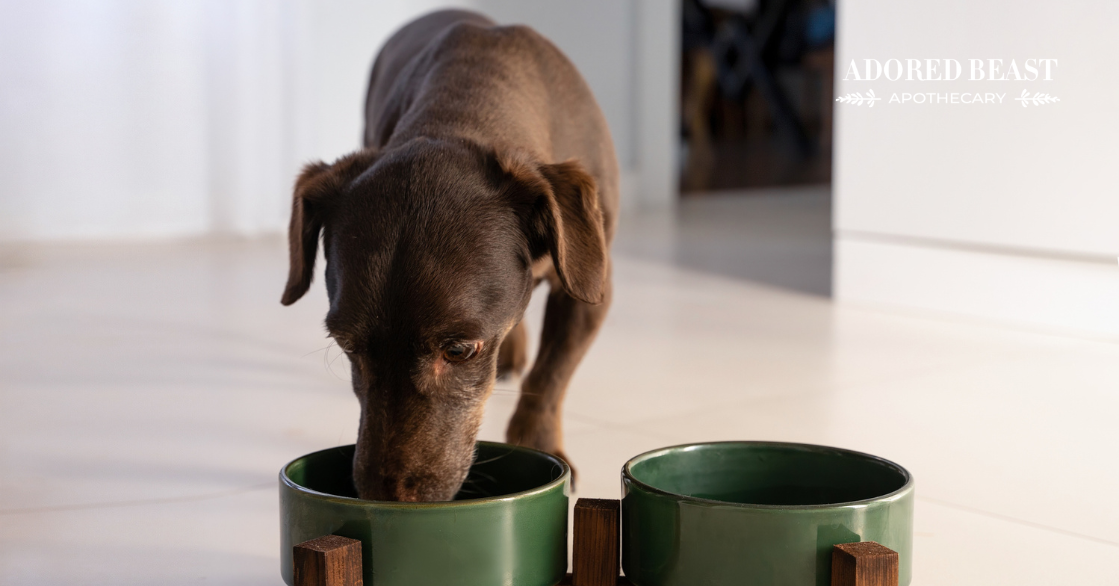Today, we’re talking prevention and management of arthritis in horses.
As horses age, the possibility of arthritic development is real, especially if you have a performance horse. Continual wear and tear can have a major impact on the joint and ligaments of such heavy animals, and systemic health also plays a role in the rate of development and severity of arthritic conditions.
The name of the game here, as with most diseases, is to minimize inflammation and slow progression. If you have a younger horse, it’s time to start thinking preventatively so that your horse can be as comfortable and mobile for as long as possible.
What is Arthritis in Horses?
Just as with humans, arthritis in horses is an inflammatory disease of the joint and its surrounding connective tissues. It is usually accompanied by stiffness and pain. There are two main types of arthritis: osteoarthritis and rheumatoid arthritis.
Osteoarthritis is a result of wear and tear over time. Performance horses are highly susceptible to this type of arthritis because of their heavy workload. Prevention is a big part of managing this type of arthritis in performance horses. Unfortunately, the conventional mindset is that this type of arthritis is just par for the course in performance animals but chronic systemic inflammation plays a huge role in this process.
Rheumatoid arthritis is a degenerative autoimmune disease that causes an inflammatory immune response in the joint tissue that then causes degeneration of the tissues. Like all immune-mediated disease, the conventional solutions are, in themselves, destructive so it’s very important to dig into your toolbox and find proactive/integrative solutions that don’t add to the problem, or at least mitigate the damage that conventional treatment can cause.
All types of arthritis are immune-mediated disease.
Despite the conventional differentiation between osteoarthritis and rheumatoid arthritis, there is always an immune component to inflammation. Studies on the connection between human gastrointestinal disease and arthritis are coming to the forefront but the research in horses is far behind. Regardless, researchers now recognize the gut as the major component of the immune system. One study in humans that I found on the link between GI health and immune-mediated arthritis was conducted in 1974 – so this is not a new concept. (1) (2) (3)
Knowing this, I think we can all appreciate how important it is to pay attention to gut health, not just in relation to equine arthritis, but to help get ahead of immune-mediated disease as a whole.
Arthritis Prevention
There are a number of ways to help your horse steer clear of an arthritis diagnosis. If you have a performance horse, it should be part of your care plan for them as they progress in their work. Do not expect your horse to last at their job if you aren’t paying attention to this important aspect of their health.
These are the steps that I take with my own horses to try and get ahead of the development of equine arthritis and keep my animals healthy:
- Supportive veterinary therapies such as injectable glucosamine and hyaluronic acid are supportive options that do not cause degeneration of joint tissues. I do not consider steroid injections to be therapeutic – I will talk about this further below.
- Walk your horse for at least 10 minutes at the beginning and end of your ride – warm your horse up before taking up the reins. Simple, but foundational.
- Icing legs during hot weather reduces inflammation and swelling before and after work. Take the time to do this. It is worth it.
- Massage, chiropractics, and bodywork – massage and other types of bodywork should be a part of your horse’s care schedule, just like it would be for any human athlete. Find someone that you and your horse trust who helps to release tension from the muscles and fascia. This has more of an impact on inflammatory disease development than is currently recognized.
- Stretch your horse before and after rides – while riding and on the ground. If you’re not sure how to do this, ask your equine body worker.
- Carefully assess your training program – be sure you’re not putting the horse before the cart with your training. Build up their strength slowly over time. And most importantly, DO NOT start a young horse in heavy work before the age of 5 years. Horses are not finished growing – this includes the musculoskeletal system – until this time and starting a horse too early can cause life-long damage.
- Add omega 3 fats to the diet. Using plant-based omega 3 fats is important for reducing systemic inflammation, including in joint tissue. Fish oils aren’t ideal because they can go rancid quickly and can actually cause more harm than good in the inflammation department. Use whole foods instead – freshly ground flax and soaked chia are great options.
- Support the gut – every horse’s gut should be top of mind for longevity. Everything breaks down when the gut isn’t healthy. Science shows it affects every body system so do yourself and your horse a favour and pay attention to this, even if they seem “fine.” This includes probiotics as well as access to a diverse variety of fibre (prebiotics) and foods that support the gut lining (eg. non-GMO beet pulp, pasture, dandelion leaf and root, marshmallow root, slippery elm bark, liquorice root, peppermint, rosehip, raspberry leaf, etc.).
- If your horse needs antibiotics or NSAIDs, be extra vigilant about supporting and restoring the gut – do not simply move on when they appear to feel better. You MUST put the time into restoring full gut function to ensure an inflammatory storm doesn’t brew.
Management Tools for Arthritis in Horses
If your horse has been diagnosed with arthritis, there is still a lot you can do to keep them comfortable.
If they have to be on pain medications, be sure you’re supporting them for that. You can cause more harm in the long run if you’re not giving them access to repair. NSAIDs are commonly used to control pain but they have negative side effects including ulcer formation which can lead to further systemic inflammation – a vicious cycle that you don’t want. Wherever possible, use alternatives that support rather than suppress the immune system or destroy the gut.
Daily supplements and herbs that help protect the gut lining from NSAID damage:
- N-acetyl glucosamine
- Marshmallow root
- Slippery Elm bark
- Psyllium husk
- Soaked chia seed
The beauty about focusing on the gut is that it can help to bring down systemic inflammation so that you can be as minimal as possible with pain medication.
Mobility – depending on the case, mobility can either make your horse feel worse or better but often times, gentle movement can help reduce swelling. Consider keeping your horse in an in/out rather than in a stall at night so that they can move as much as possible.
Hot and cold – depending on the season and the individual horse, hot and cold compresses can help affected areas. See what makes them better or worse.
Homeopathy – a completely safe and non-invasive medicine that can be used alongside conventional therapies and can help to minimize the use of drugs. Important homeopathic remedies use in arthritis cases include:
- Arnica
- Aconite
- Calendula
- Ruta
- Rhus Tox
- Bryonia
- Symphytum
These remedies can also be used preventatively for horses in heavy work eg. at horse shows or when training sessions are particularly vigorous.
Of course, quality of life is primary but thinking ahead is part of making those decisions for your horse. Try not to just think about today. Think about the long term effects of your management plan.
Warning – Rant Time: Ethics in the Sport Horse Industry
A note on steroid injections – A common practice with performance horses today is steroid injections. For me, this is an animal welfare issue and we all must consider the ethics of it. Steroids have long been recognized as causing degeneration of the joint tissue. Ethically, it makes no sense to inject an animal with steroids who has arthritis and then continue in heavy work. The suppression of the inflammation not only causes the horse to go past their pain threshold and cause further damage to the joint tissues, but the steroids themselves are destructive to that same tissue. We need to ask why this is a common practice for performance horses when it is clearly causing long term destruction for the sake of our wants and needs. This is something I feel strongly about and will continue to speak out about.
If you truly care about your horse’s wellbeing and your horse has arthritis, either figure out a true healing solution or consider retiring your horse to more pleasure-like work. Horses are not machines and we all need to treat them as the sentient beings that they are, not as commodities for us to use up and destroy.
References:












